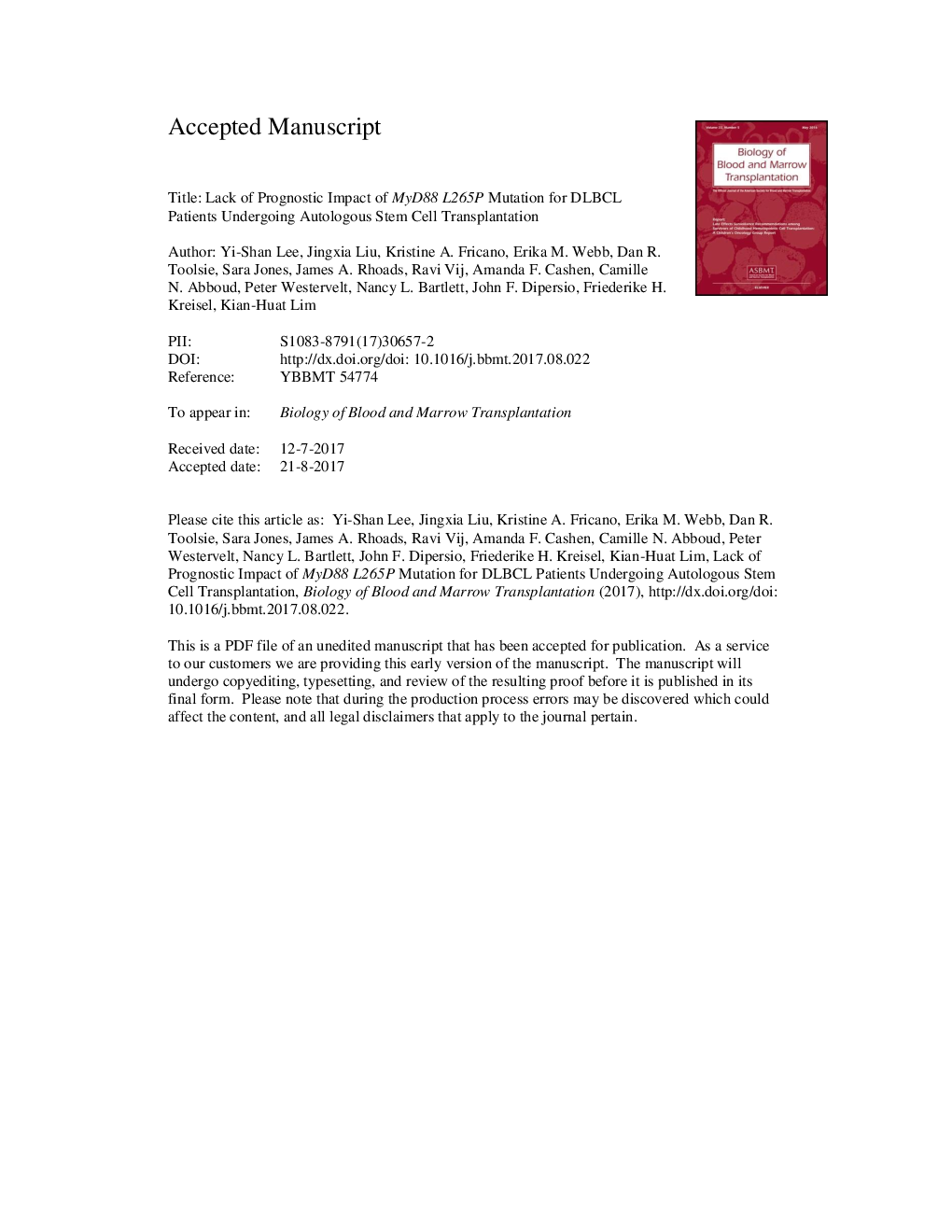| Article ID | Journal | Published Year | Pages | File Type |
|---|---|---|---|---|
| 8430780 | Biology of Blood and Marrow Transplantation | 2017 | 15 Pages |
Abstract
Cell-of-origin determination has emerged as an important prognostic factor for patients initially diagnosed with diffuse large B cell lymphoma (DLBCL). Specifically, the nongerminal center B cell-like (non-GCB) subtype, composed predominantly of the activated B cell-like (ABC) molecular subtype, has been shown to portend poor prognosis because of its more aggressive nature and resistance to standard cyclophosphamide, hydroxydaunorubicin, oncovin, prednisone (CHOP)-like chemotherapy compared with the GCB subtype. The recurrent MyD88 L265P mutation, present in 29% of ABC DLBCL, was reported as an independent poor prognostic factor for patients with newly diagnosed DLBCL. For patients whose disease relapses or is refractory to first-line chemotherapy, high-dose chemotherapy with autologous stem cell transplantation (ASCT) is frequently offered as salvage therapy. However, the impact of MyD88 mutation status on post-ASCT outcome has not been reported. Here, we retrospectively analyzed, with up to 20 years of follow-up, 165 patients who underwent ASCT for relapsed/refractory DLBCL at our institution. We found that MyD88 mutation status did not correlate with overall survival (OS), post-ASCT OS, or progression-free survival (PFS). Patients with non-GCB subtype had significantly worse OS from initial diagnosis and after ASCT. Notably, high International Prognostic Index score was predictive of poor pre- and post-transplant PFS and post-transplant OS.
Related Topics
Life Sciences
Biochemistry, Genetics and Molecular Biology
Cancer Research
Authors
Yi-Shan Lee, Jingxia Liu, Kristine A. Fricano, Erika M. Webb, Dan R. Toolsie, Sara Jones, James A. Rhoads, Ravi Vij, Amanda F. Cashen, Camille N. Abboud, Peter Westervelt, Nancy L. Bartlett, John F. Dipersio, Friederike H. Kreisel, Kian-Huat Lim,
